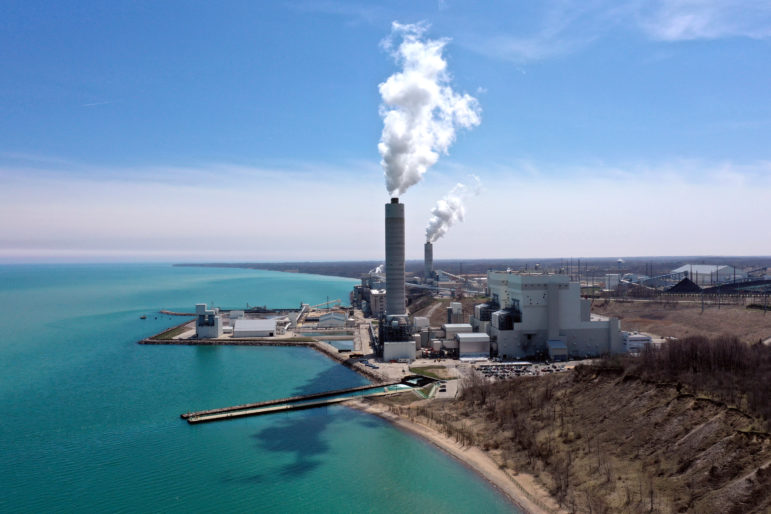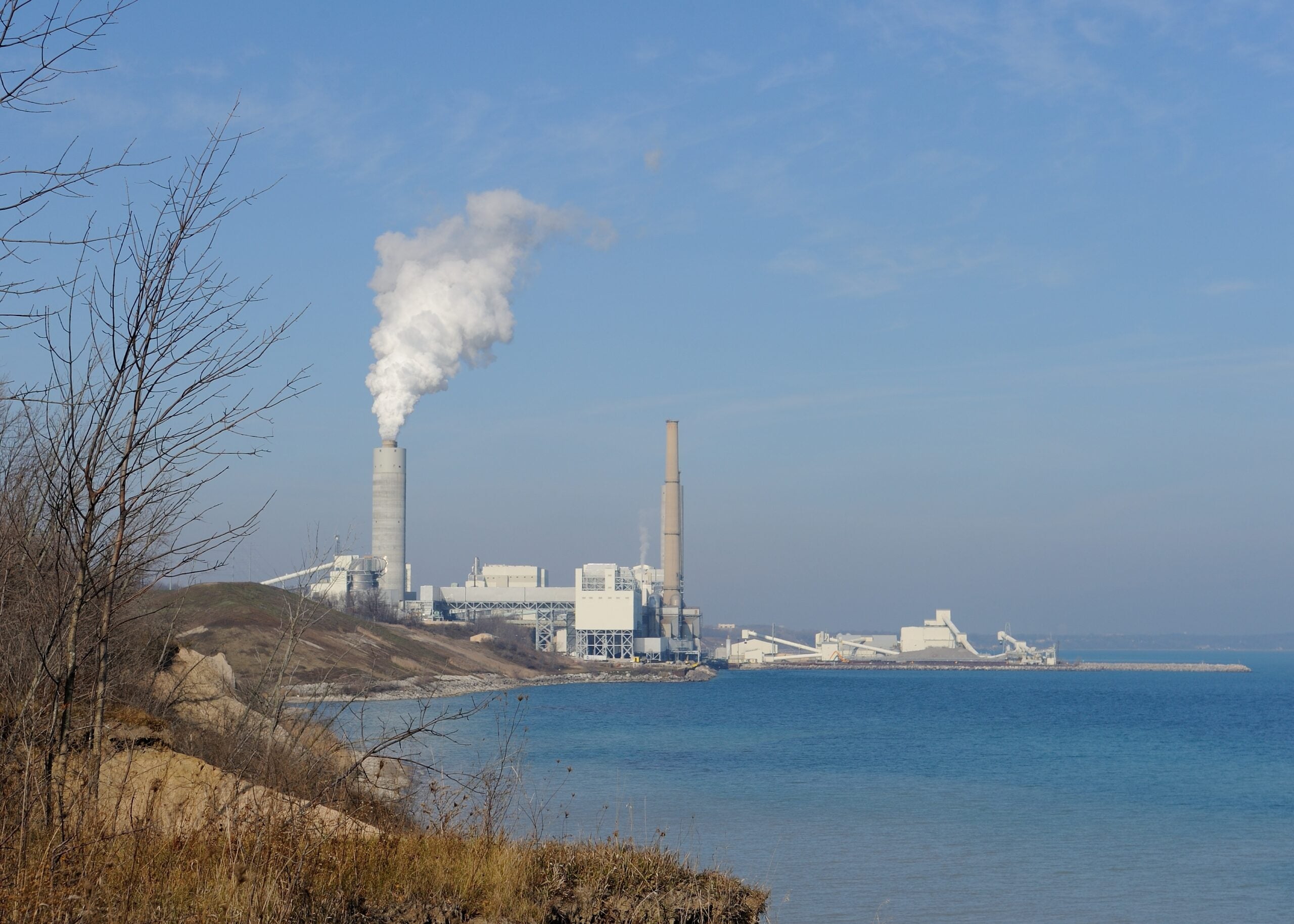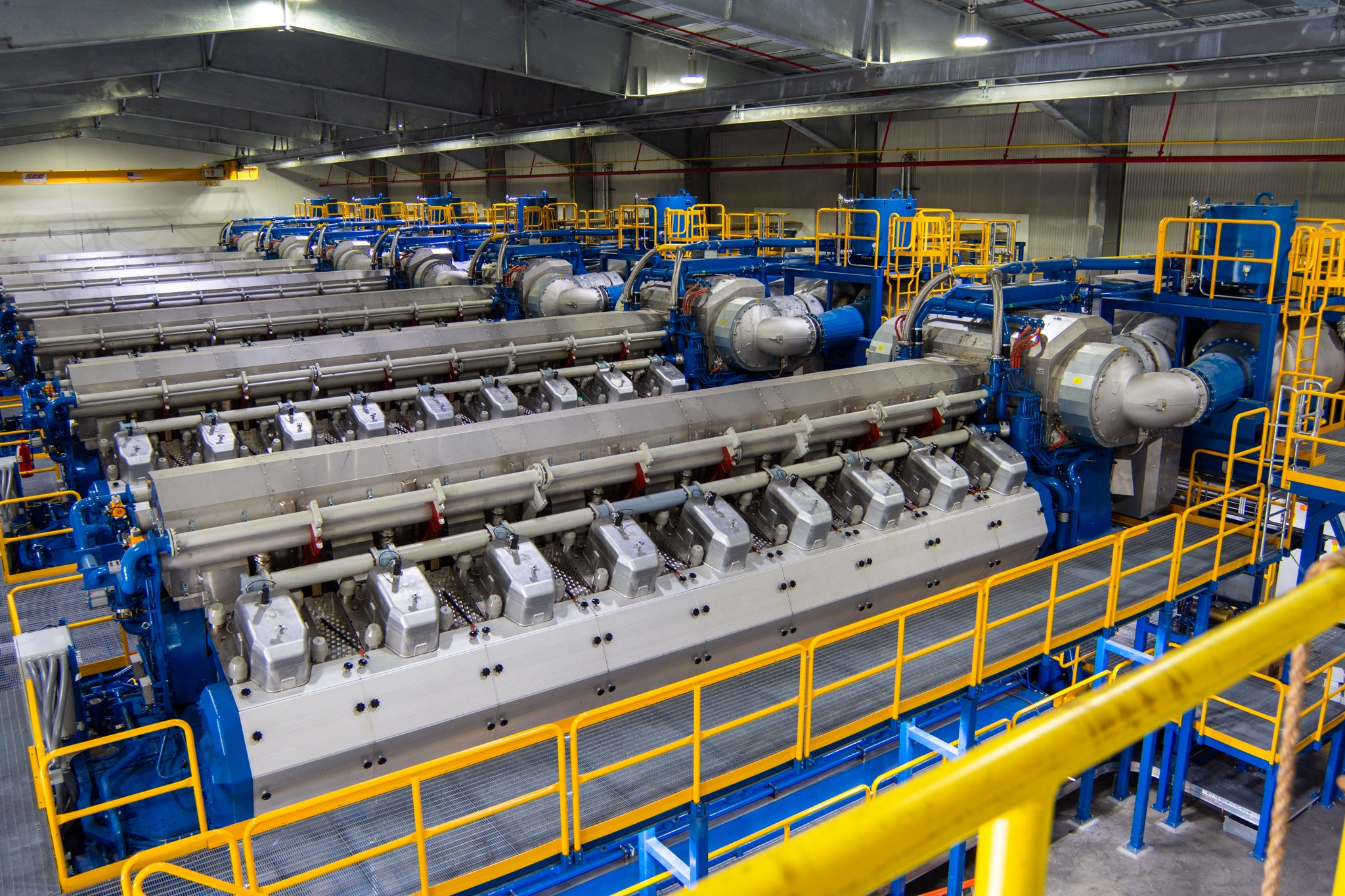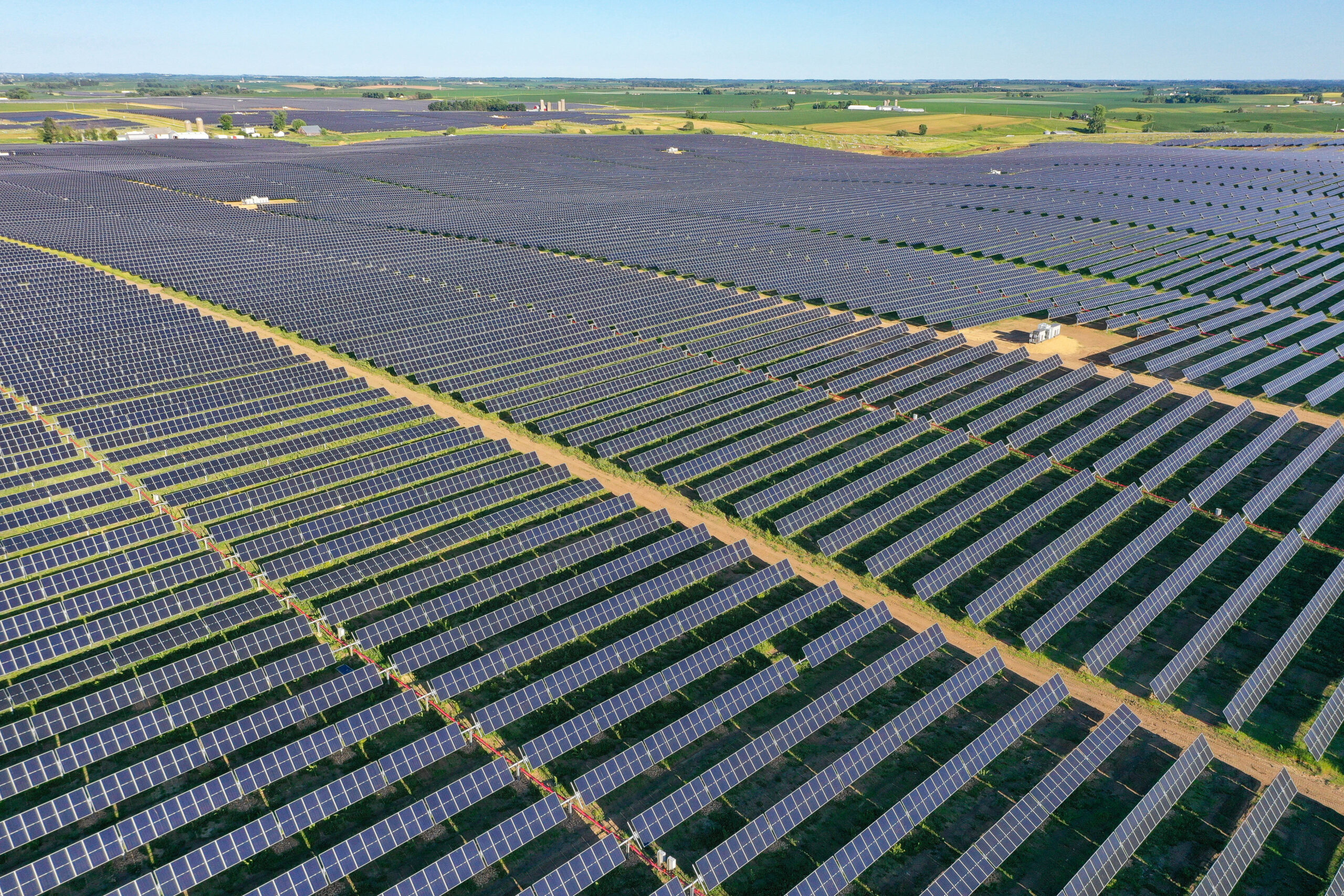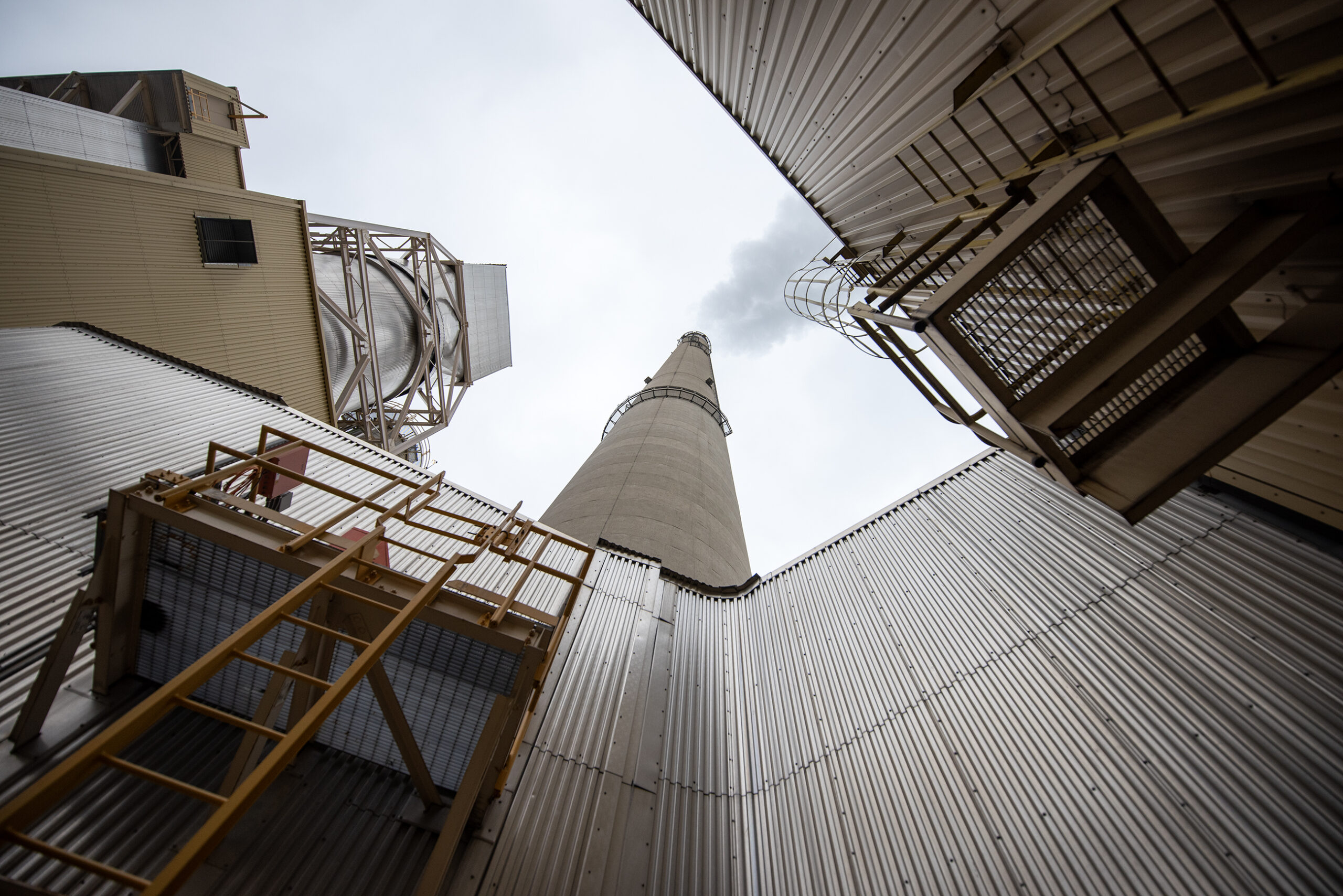Owners of a coal plant in southeastern Wisconsin will spend nearly $90 million on a treatment system that seeks to reduce pollution from its wastewater. The changes are tied to federal regulations that seek to limit contamination from coal waste in surrounding waterways.
In December, the Public Service Commission signed off on pollution controls for the 1,200-megawatt Elm Road Generating Station in Oak Creek, which is primarily owned by We Energies. Critics of the project say it makes no sense to invest more in the plant as the utility transitions it to natural gas.
The coal plant is the most recent to be built in the state at a cost of more than $2 billion when it was completed in 2011. The Environmental Protection Agency issued a rule just four years later that required coal plants to install state-of-the-art technology to treat wastewater that’s discharged into waterways, including Lake Michigan.
Stay informed on the latest news
Sign up for WPR’s email newsletter.
The rule experienced years of delays and revisions under former President Donald Trump’s administration, which rolled back requirements for coal plants that took effect in late 2020. The Wisconsin Department of Natural Resources required the site to comply with the rule by the end of 2023.
“This project is required to meet near-term federal regulations,” Brendan Conway, spokesperson for We Energies, said. “These units will continue to run, and then transition likely over the next decade, and then continue to serve our customers for decades.”
The new wastewater treatment technologies must be installed to reduce traces of metals — like mercury, arsenic and selenium — found in wastewater of the plant’s scrubber systems. Those systems are used to reduce air pollution by removing sulfur dioxide emissions from burning coal.
In November, WEC Energy Group, the parent company of We Energies and Wisconsin Public Service, announced it would drop coal by 2035 and convert Elm Road’s two coal-fired units to natural gas. The transition is expected to cost $150 million. The company anticipates coal will account for less than 5 percent of its power mix by the end of the decade.
Clean Wisconsin said it supports efforts to protect water quality from industrial sources, but the environmental group argued regulators’ decision to approve the upgrades isn’t in the best interest of the utility’s customers or the environment.
The parent company for We Energies and Wisconsin Public Service announced last fall it plans to invest $5.4 billion in renewable energy over the next five years. Last year, the utilities announced they’re partnering with Madison Gas and Electric on several solar and battery storage projects, representing a roughly $1.5 billion investment.
WEC Energy Group is also planning to add another 700 megawatts of solar and 500 megawatts of battery storage that are yet to be announced.
Korte said proposals by utilities aren’t enough to meet Gov. Tony Evers’ goal of 100 percent carbon-free electricity by 2050. President Joe Biden’s administration has set a goal for the power sector to go carbon neutral by 2035 as part of efforts to reduce greenhouse gas emissions to avoid the worst effects of climate change.
Wisconsin’s Citizens Utility Board, or CUB, in comments to the Public Service Commission said the compliance deadline for the new treatment technologies created a “back to the wall” scenario as a result of approving the coal-fired units in the first place. The customer advocacy group expressed concerns about the new investments becoming prematurely obsolete as the utility transitions to natural gas.
“CUB believes that it is particularly important in this case that the Commission be given all opportunities to monitor project costs and possible overruns so as to protect ratepayers and the public interest,” wrote Corey Singletary, the group’s regulatory affairs director, in the comments.
In November, WEC Energy Group reported compliance with the 2015 rule would cost We Energies and Wisconsin Public Service around $110 million to comply in a quarterly filing to the U.S. Securities and Exchange Commission.
As part of the commission’s approval, owners of the plant are required to report cost overruns of more than 10 percent within 30 days. Utilities are also required to submit annual progress reports that include any additional investments that may be needed as part of transitioning the plant to natural gas.
Wisconsin Public Radio, © Copyright 2025, Board of Regents of the University of Wisconsin System and Wisconsin Educational Communications Board.
